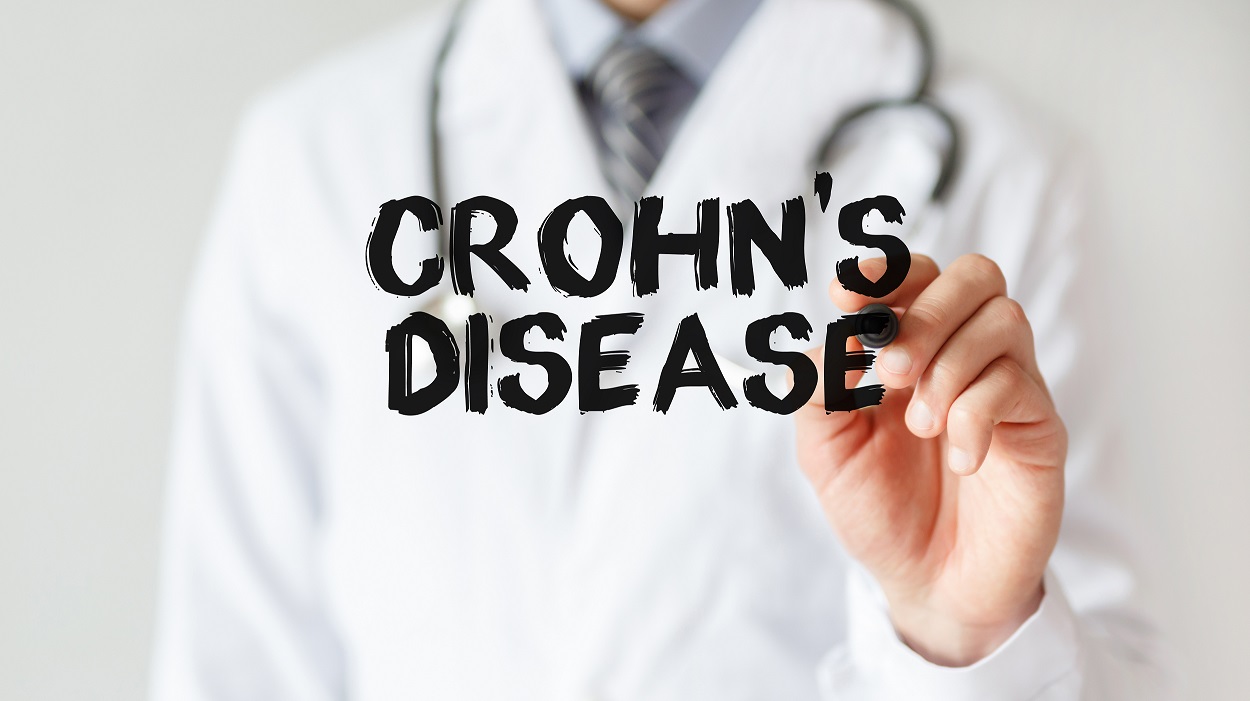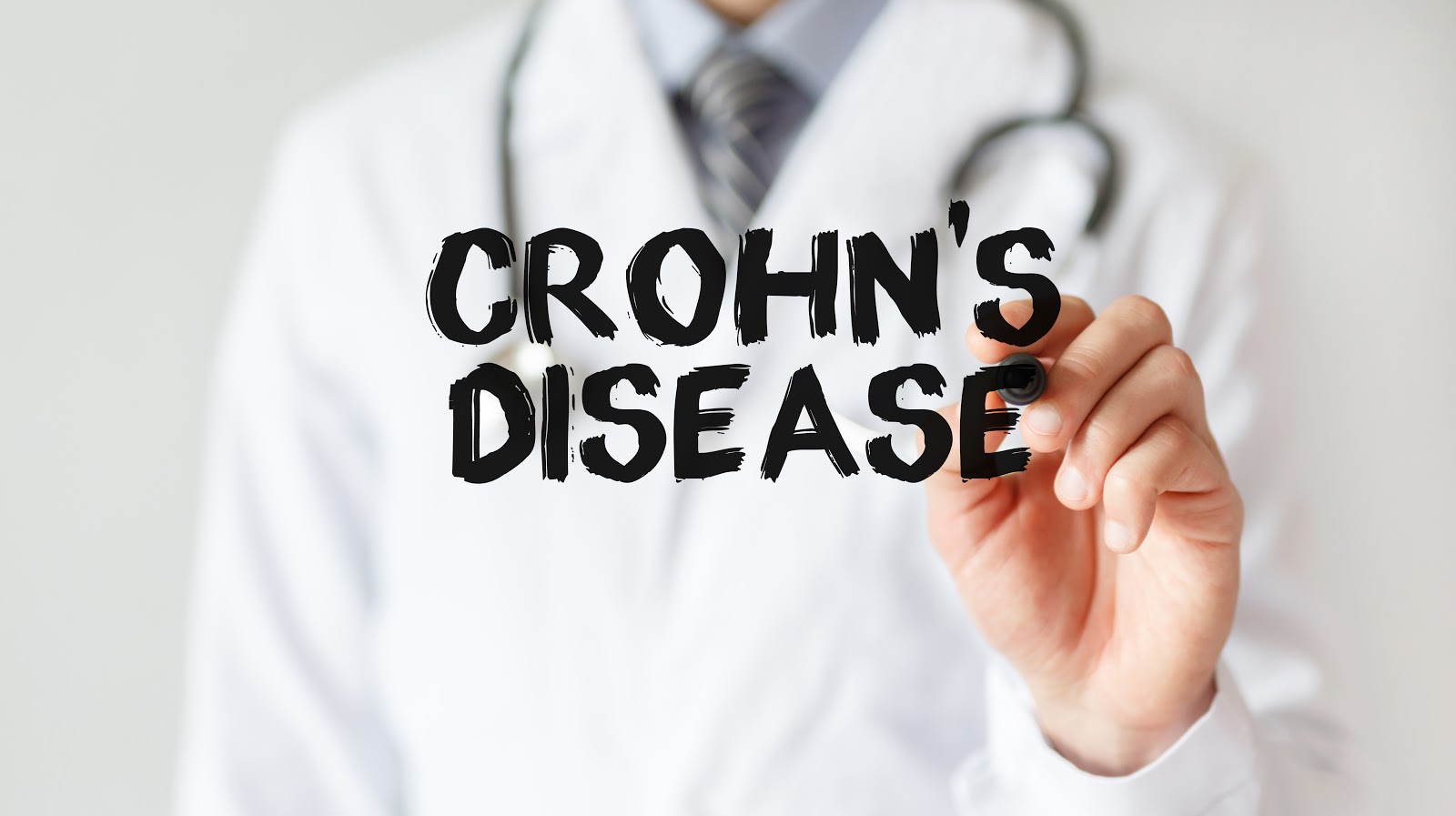
Crohn's disease affects a person's gastrointestinal tract, causing chronic inflammation. First discovered in 1932, the disease is one of several conditions categorized under inflammatory bowel disease (IBD).
The disease is wide-ranging and can affect various portions of the gastrointestinal tract at any time. Each type of Crohn's can be brutal on the body, producing symptoms ranging from diarrhea and rectal bleeding to vomiting and chronic pain.
Diagnosing and treating Crohn’s can be quite difficult and a laborious process. With no one set treatment option for every patient, a unique approach is taken for each patient. In recent years, medical marijuana became an option for many in the space, whether recommended by a physician or not.
What is Crohn’s disease?
Crohn's disease causes the digestive tract to inflame, leading to pain in the abdomen, diarrhea, weight loss, malnutrition, and fatigue. The often debilitating bowel disease affects an estimated 3 million people in the United States alone.
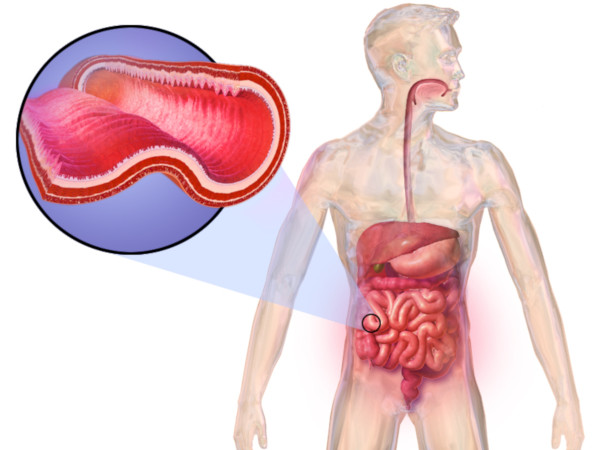
Crohn’s is known to impact any portion of the digestive tract, from the mouth to the anus, penetrating into bowel tissue layers. Depending on the area affected, the severity of the condition and its treatment can vary. Though the symptoms may appear similar, several types of Crohn's exist, presenting their own symptoms and concerns that patients need to be aware of.
Another condition in the IBD category is ulcerative colitis, a similar condition that affects the colon, rectum, and large intestine’s innermost lining.
What Causes Crohn’s disease?
The source of Crohn’s disease is more complicated than what was once believed.
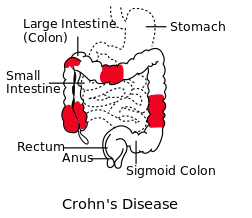
Crohn's affects many different parts of the intestines- Patterns of Crohn's Disease.svg by Samir, vectorized by Fvasconcellos / CC BY-SA
The common medical belief was that Crohn's stemmed from a person's diet and stress. That assertion has since been pulled back, recognizing that the two were just a duo of likely factors. Today, researchers at institutions, such as the Mayo Clinic, believe that heredity and a faulty immune system both play a part.
Crohn's affects the genders equally, occurring at any time in life, with age 15 to 35 serving as most common. The Crohn's and Colitis Foundation reports that Crohn's appears more often in developed nations, primarily in cities and suburbs with Northern climates.
How Is Crohn’s Disease Treated?
Patients seeking relief for their Crohn's symptoms are offered a range of options, with a combination of several needed to address the different symptoms each person lives with.
Options include medication, which aims to suppress the immune system's out-of-character inflammatory response. If successful, suppression should relieve many of the disease's most painful symptoms. Additional therapies may be recommended to improve treatment effects. That said, patients are warned that any combination of options could produce adverse results.
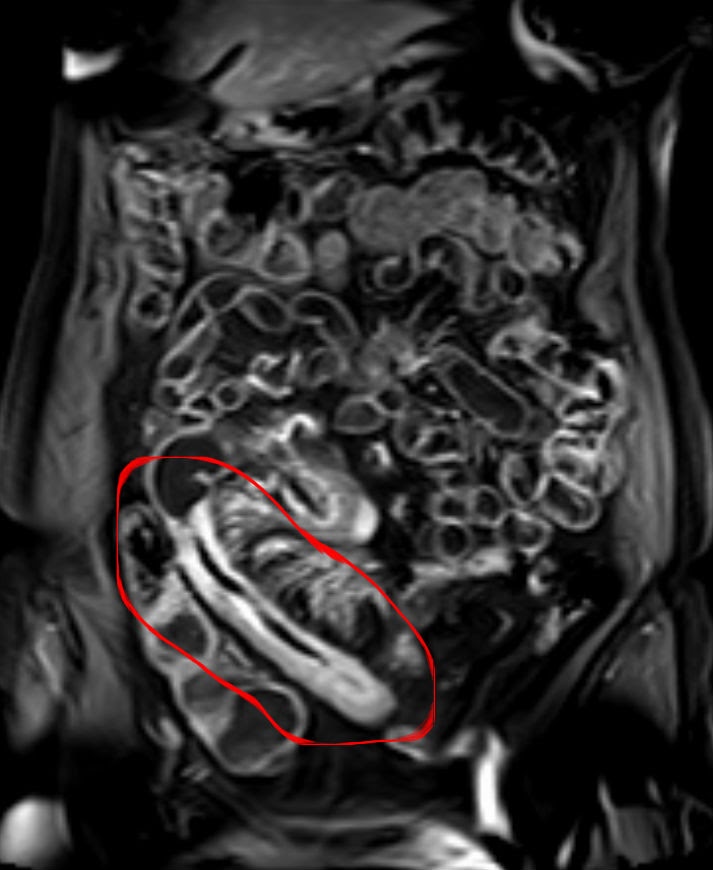
Patients might have to change their diet, as certain ingredients or foods could trigger symptoms to flare. A diet of soft, blander foods is often recommended, though not successful for everyone.
Even when properly adhering to changes in diet and lifestyle, it is estimated that roughly 70% of those living with Crohn's will need surgery at some point in their life. In many cases, surgery includes removing areas most affected or when medication cannot control the symptoms.
Which States Allow Cannabis Treatment For Crohn’s Disease?
As a condition that affects millions, several states include Crohn’s on its qualifying conditions list for its medical marijuana program. They include
- Arizona
- Arkansas
- Connecticut
- Florida
- Hawaii
- Illinois
- Iowa
- Louisiana
- Massachusetts
- Michigan
- Minnesota
- Missouri
- Montana
- New Hampshire
- New Jersey
- New Mexico
- New York
- North Dakota
- Ohio
- Pennsylvania
- Rhode Island
- Utah
- Vermont
- Washington State
- West Virginia
Crohn’s may also qualify in states where there is no definite list of medical conditions stated. In individual states, physicians can recommend marijuana if they believe it could improve a patient’s life quality. Additionally, citizens in particular states can petition for individual exceptions, or to have a condition included on the list.
Current Research About Cannabis and Crohn’s
Research compiled by the Crohn's & Colitis Foundation notes that small studies have indicated that when smoked, cannabis has the potential to improve various symptoms of IBD--including chronic pain, nausea, and a loss of appetite. The organization stated that there is no evidence supporting claims that medical cannabis can reduce inflammation caused by IBD, or improve disease activity. While many make anecdotal claims stating as such, additional lab studies must be conducted before any statements can be verified.

In recent years, lab studies produced mixed results, with several concluding that cannabis may produce "significant clinical improvement." However, these studies are very limited in scope, and research remains in an early stage. Additional studies must be performed before any determinations can be made.
Are There Risks Associated with Cannabis and Crohn’s?
There are a few apparent risks directly associated with using medical marijuana for Crohn’s symptoms. Groups like the Crohn's & Colitis Foundation do not note any particular risks when using cannabis to treat Crohn's disease symptoms.
That said, some of the known side effects of cannabis use could exacerbate a person's condition. Notably, cannabis hyperemesis syndrome, a condition that produces nausea and vomiting in consumers, is a more rare outcome patients should be aware of.
In other cases, patients should be mindful of the possible effects to their short-term memory, as well as an impact on their concentration, coordination and heightened anxiety among several potential side effects.
How Do I Find the Best Cannabis for My Needs?
Speaking with a professional is always the best way to find the right cannabis options for your medical needs. The best source is speaking with your licensed physician. This can occur during your evaluation when the doctor assesses your condition to determine if medical cannabis is right for you. This session is the ideal time to ask all of the questions you have. Don’t be afraid to ask what’s on your mind--they’ve likely heard it all.

You can also follow up with your physician later during an additional appointment or whatever arrangements have been provided.
Speaking with an informed professional at the dispensary is another option. Most medical locations have either pharmacists or thoroughly-trained budtenders who can help recommend items that may be best suited for your needs.

Find natural, lasting relief with our comprehensive (and completely free) patient’s guide to medical cannabis for pain relief.
The physicians and practitioners that work with NuggMD believe everyone has a right to explore marijuana as a potential treatment for their chronic illnesses. NuggMD's practitioners are committed to providing easy and affordable access to medical marijuana telemedicine recommendations from the comfort and safety of home. NuggMD serves patients in 28 states and growing.
The information in this article and any included images or charts are for educational purposes only. This information is neither a substitute for, nor does it replace, professional legal advice or medical advice, diagnosis, or treatment. If you have any concerns or questions about laws, regulations, or your health, you should always consult with an attorney, physician or other licensed professional.

